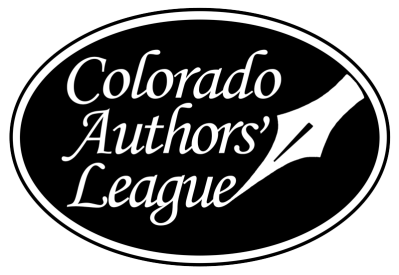[ad_1]
EJ Levy’s novel, “The Cape Doctor,” was named a New York Times Book Review Editors’ Choice and one of Barnes & Noble’s Best Books of Summer 2021. Her story collection, ”Love, In Theory,” won a Flannery O’Connor Award and GLCA New Writers Award for Fiction. Levy’s anthology, “Tasting Life Twice: Literary Lesbian Fiction by New American Writers,”won a Lambda Award. She has worked as a film-magazine editor, edited an LGBTQ newspaper, been an environmental activist in New Mexico, and is currently an Associate Professor in the MFA at Colorado State University.
SunLit: Tell us this book’s backstory. What inspired you to write it? Where did the story/theme originate?
EJ Levy: I first heard of Dr. James Barry (re-named Dr. Perry in my novel) on a flight to Cape Town in October 2011. A single line in a guidebook captivated my attention — it was about a brilliant 19-century army surgeon, a dandy and duelist, who was caught in a sodomy scandal with Cape Town’s aristocratic governor in 1824, only to be discovered after death to have been a “perfect female” who had carried a child (we now know that “perfect female” was Margaret Ann Bulkley, born in Cork, Ireland, circa 1790, who became James in order to enter medical school at a time when women were denied that education).
As I toured Cape Town, I wondered what Barry had thought of those places — a prison, a hospital, a garden, the mountains. Barry’s voice seemed to be in my head, as I walked: the doctor absorbed by botany, a collector and student of local plants for medicinal purposes; Barry at Tunhuys (the Government House), at the Castle, where soldiers were quartered, at Simon’s Bay. It felt less like imagining, than like listening.
I read everything I could about Dr. Barry and his circle—Cape Town’s governor, Lord Somerset; General Miranda (a Venezuelan revolutionary and Barry’s mentor); Simón Bolívar, and others. As I read, I was delighted to find that my imaginings were often accurate, uncannily.
UNDERWRITTEN BY

Each week, The Colorado Sun and Colorado Humanities & Center For The Book feature an excerpt from a Colorado book and an interview with the author. Explore the SunLit archives at coloradosun.com/sunlit.
I felt James Barry spoke to me. Barry’s story speaks to many people, including other writers: Both Charles Dickens and Mark Twain wrote about him. Barry’s life demonstrates what a person can achieve when freed from expectations of gender; it speaks to the transformative power of education often denied to girls and women. As an eloquent advocate for medical care as a basic human right, and as a person who transited gender, Dr. Barry speaks urgently to our time. I remain captivated by Margaret and James!
Place this excerpt in context. How does it fit into the book as a whole? Why did you select it?
Barry was famous in their lifetime for their brilliance and terrible temper, but especially for having performed the first successful caesarean section recorded in Africa, which both mother and child survived, so I wanted to represent that achievement.
It’s ironic that Barry, who was a social reformer and progressive thinker, ended up saving the life of a child whose heir, generations later, would be an architect of apartheid, a regime that Barry would have deplored. So that heroic surgical feat raises a question, too, about how we measure a life: Are our actions honorable if, however well intentioned, they give rise to an abomination? How are we to measure a life?
Tell us about creating this book. What influences and/or experiences informed the project before you actually sat down to write the book?
As I noted earlier, my trip to Cape Town sparked the book, as did my intuition about Barry’s experiences there — but I’d add this: In my 30s, as an out lesbian, I was often taken for a man. I wore suit coats, had short hair, a deep voice, but I wondered at the time what it was that strangers thought they saw when they saw me as male. I wanted to explore that question in my book.
Looking at Margaret’s life and transformation into James (or Jonathan, in my novel), I had an opportunity to consider at length the weight of sex and gender in a life, and how we transit these categories. What it is that makes our culture read us as one or the other.
As I write in the book, “I could not help but wonder, then as now, When we look at a man or a woman, what is it that we see? We make too much of the difference: having been both, I can say the distinctions are both greater and less than they appear. As a surgeon, I can attest that once the skin is peeled back, the distinctions are few; save for the reproductive organs, one cannot tell man from woman — one cannot say, This is a woman’s brain or lungs, a man’s heart. They think and beat just the same.”
That said, I don’t claim to speak for all persons in my exploration of this. I know that for many gender identities are experienced as an essential part of the self, intrinsic. For me, it’s always seemed more fluid than that: I feel like a person, merely human; the expectations of gender are rather more like a costume that society demands that I wear, but which fits rather loosely.

Once you began writing, did the story take you in any unexpected directions? If so, how would you describe dealing with a narrative that seems to have a mind of its own?
It did! The opening lines came to me while I was walking around Cape Town. I felt quite haunted by the doctor’s story, almost as if I were taking dictation for the first few chapters, but especially with that opening line, “She died, so I might live.”
I realized pretty quickly that the story was narrated from a post-mortal perspective, from beyond the grave, as it were. That was unexpected (and I tried to alter it), but ultimately, I let the story tell itself as it seemed to want to be told. Instead of trying to change the vantage point, I ended up seeking to uncover the reason behind that voice: What would make a spirit want to speak from the dead? What would justify such a telling from beyond death? When I found the answer, I was surprised and knew the book was done!
What were the biggest challenges you faced, or surprises you encountered in completing this book?
It was hard to shed my 21st-century consciousness to enter into the world of the early 19th century, and imagine life 200 years ago. I had to read a lot to grasp what life was like in Georgian England and in the British colonies of the 1810s and 1820s: pre-Freud, pre-Einstein, pre-Victorians, before the widespread use of electricity, and before modern germ theory. I was surprised to discover how much I am a product of my time.
I did some primary research — in Cape Town and in medical and other archives — but mostly I relied on books to understand Barry’s life and his circle, as well as his time and place. Two excellent biographies of Dr. Barry helped in particular (Rachel Holmes’ “The Secret Life of Dr. James Barry” and (after my novel was written) DuPreez and Dronfield’s “Dr. James Barry: A Woman Ahead of Her Time”) as well as histories of medicine and English society of the time.
I had serendipitous encounters while conducting research. At the Mutter Medical Library in Philadelphia, for example, I had the opportunity to examine an original copy of William Smellie’s obstetrical atlas “A Sett of Anatomical Tables, with Explanations, and an Abridgement of the Practice of Midwifery” (1754). It was utterly thrilling. I don’t know that Margaret encountered the text — though Holmes speculates that Barry likely did — but picking up that volume, big as a briefcase, turning its pages in the hushed reading room of the Mutter, I felt I understood what Margaret would have experienced had she come upon it in 1809 in General Miranda’s library — the thrill of discovering one’s female body — not as object of a man’s gaze (as girls and women often see themselves) but as intellectual puzzle, as a fascinating subject for study. That atlas became a window into that life.
Has the book raised questions or provoked strong opinions among your readers? How did you address them?
Since its publication, almost all reviews have been very positive, and I was pleased that ALA’s Booklist called it “an unforgettable work of art” and that it was named a New York Times Book Review Editor’s Choice!
But two years before the book was published – when no one had read it except my editor, my agent, and my best friend – the novel was accused of being transphobic, because descriptions of my book mentioned that the doctor was born female. Some on Twitter felt that only a male pronoun should be used; but the historical record doesn’t support that view.
We know that Margaret became James from necessity, in order to enter medical school from which women were barred at the time. We have no record of how they felt about their gender or sex. So both a feminist and a trans reading of that life seem plausible. No one has a right to say that only one interpretation is valid.
Without a doubt Margaret Bulkley and James Barry transited gender in their lifetime. And Dr. James Barry is a figure admired by the transgender community. But I have seen no evidence that Margaret transited from an identification with maleness. We simply do not know.
I imagine Margaret identified as a doctor (a profession only available to men) and as a human at a time when humanity was only recognized in white men of a certain class. It’s clear that Margaret was brilliant, and ambitious of a life of adventure. In fact, she told her brother she’d be a soldier were she not a girl. But her sex was a barrier to achieving those ambitions, and she knew it.
Only by living as a boy, then as a man, could Margaret study at the best university, study medicine, join the army, and travel. Women were not thought capable of medical education in 1809 — when Margaret, as James Barry, entered medical school — hard as that is to believe. It would be another 40 years before Elizabeth Blackwell would become the first woman known to be granted a medical degree (in the U.S. in 1849), and another 56 years before Elizabeth Garret Anderson would be the first woman to qualify in England.
Not until 1876 — fully half a century after Barry received his medical degree — was an act passed in England permitting women to enter the medical profession. It was illegal in 1809 to be a woman on a naval ship, let alone to be a soldier or an army surgeon.
Margaret had to be thought of as a man to be deemed fully human and to live freely. It’s hard to gauge choice and inclination in such a circumstance. How Margaret and James Barry felt about that transition is left to us to imagine.
Walk us through your writing process: Where and how do you write?
I’m a mother of an 8-year-old and a professor, so I have very little time right now to write, but when I do, I write in my overcrowded office, first by hand in a journal, then on the computer. I love to write on airplanes, in airports, in transit, mostly because it’s a rare chance for solitude and delicious, self-forgetful concentration.
People have asked me how Margaret could so convincingly and enduringly live as James in the 1810s and 1820s. What were the steps Margaret Bulkley had to take to become James Miranda Barry? Why was she able to disappear so, seemingly, easily?
She had a lot of help – mentors, powerful protectors, whom she met through her uncle James Barry R.A., a famed historical painter. General Miranda, Lord Buchan, later Lord Somerset. These men attested to James Miranda Barry’s existence, and made introductions.
Margaret had powerful men vouching for her place in the club of men. So no one questioned it. They provided clothes, a name, references, arranged for enrollment in university, and provided funds. Even so, it wasn’t easy. Throughout James’ career, there were moments of suspicion.
Napoleon’s minister recognized Margaret when they met in Cape Town — or rather, he wrote at the time that Dr. Barry appeared to be a woman. He wasn’t alone: Lord Somerset had his aide-de-camp transferred to a distant post after the man observed that Dr. Barry while riding appeared to be a woman from behind.
Even Dr. Barry’s godson, whom James delivered by caesarian section, once commented in a letter to Barry that he’d heard the doctor much resembled a woman. Dr. Barry never wrote to him again. After Barry’s death, when the doctor’s secret was discovered, many claimed they’d known.
Then again, maybe Margaret’s disappearance was possible because women’s lives are largely overlooked. Certainly they were then. No one was expecting a young woman to be a brilliant student, a doctor, an army surgeon. No one was looking at what was in plain sight.
Tell us about your next project.
I have two novels (as well as a memoir and essay collection) that I’m eager to polish and send out: One is a novel set in Brooklyn in the 1990s about female friendship and battles for reproductive freedom. Another novel is a genesis myth, with robots at the center.
[ad_2]
Source link




